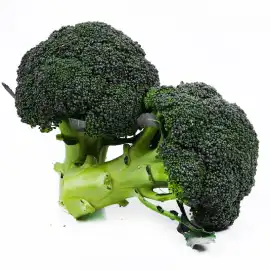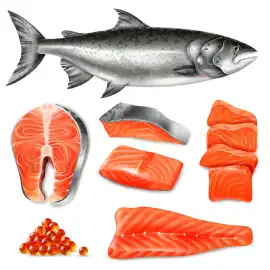The prevention of infectious illnesses like COVID-19 requires hand washing and social segregation, but a balanced diet is also important. Here are foods that offer essential foods to boost your immune system.
Your body’s immune system is its best defense. It aids in thwarting incoming bacterial and viral assaults. It aids in the recovery of your cells following sickness. Even the severity of a disease may be lessened with its aid. You should thus pay a bit more attention to your immune system, especially when viruses and bugs are spreading across your neighborhood or even simply your home.
To boost your immune system, look at these foods that include those essential immune-boosting elements as well as three to avoid.
How to Boost your immune system with Dietary Supplements

Broccoli
In addition to being a strong source of vitamin C and beta-carotene, broccoli also has Sulphur compounds that, according to a study, may increase the formation of the antioxidant glutathione. To assist the immune system, glutathione combats free radicals to reduce the potential harm they might do. This enables the immune system to concentrate on maintaining health rather than healing itself after injury. Other sources of Sulphur include the majority of cruciferous vegetables, such as cauliflower, bok choy, and kale, which have a faint aroma when cooked.

Orange Juice
Although I don’t usually recommend drinking fruit instead of eating it, fortified orange juice packs a powerful immune-boosting punch. One cup naturally contains 100% of your Daily Value (DV) for vitamin C, an antioxidant that is essential for maintaining the health of the immune system, and 25% of your DV for vitamin D. This is crucial since the majority of individuals have vitamin D levels that are below optimal levels, which, according to study, increase one’s susceptibility to sickness. According to a 2017 study, vitamin D supplements may even assist to prevent respiratory infections.

Eggs
The body needs minerals like vitamin D, zinc, selenium, and vitamin E for good immunological functioning, therefore eggs are a great way to meet this aim. It takes a lot of protein to keep the immune system functioning properly. If at all feasible, choose eggs from chickens who were on a vegetarian diet. You can get some with a little bit more vitamin D and E and omega-3 fatty acids. However, since the nutrient content doesn’t appear to be impacted, cage-free or organic varieties are not necessary.

Bell Pepper
While red or yellow bell peppers are excellent sources of vitamin C if you want to stock up, choose citrus fruits. The amount of vitamin C in a medium red bell pepper is more than double that of a medium orange. Additionally, bell peppers contain a small amount of vitamin E, another antioxidant, as well as a lot of the antioxidant beta-carotene. Slices can be added to a salad, stir-fried with other vegetables, or used in place of pita bread to dip in hummus.
Beef

Are you shocked to see meat on this list? Here’s why I think it’s one of the best foods for boosting immunological health: More than half of the Recommended Dietary Allowance (RDA) for zinc, selenium, and vitamin B6 is included in a 4-ounce meal of flank steak. It can be difficult to get enough of these three nutrients, and even a mild shortage in one of them could prevent your immune system from functioning as well as it should. This may weaken your immune system’s capability and make you more susceptible to sickness. Find methods to include lean beef dishes like flank, round, and sirloin up to three times a week.

Salmon
Salmon immunity-boosting isn’t a health benefit that is typically linked with salmon, but regular and optimal omega-3 fatty acid consumption is crucial for lowering inflammation, especially DHA and EPA, two forms present in cold-water fish. The immune system is then able to focus more of its efforts on defending the body against infections and fighting illness. You need a shelf-stable product. For the pantry, stock up on water cans of salmon or light tuna. Both fish are great sources of vitamin D and selenium, a mineral that supports immune system health and is an antioxidant.
Conclusion:
A healthy immune system is aided by the vitamins A, B6, B12, C, and D as well as copper, folate, iron, selenium, and zinc. This does not obligate you to take supplements, and excessive usage of some vitamins may be harmful. Instead, focus on consuming these nutrients through a balanced, healthy diet that includes meat, fish, and plant proteins like pulses, as well as fruits, vegetables, whole grains, nuts, and seeds.







